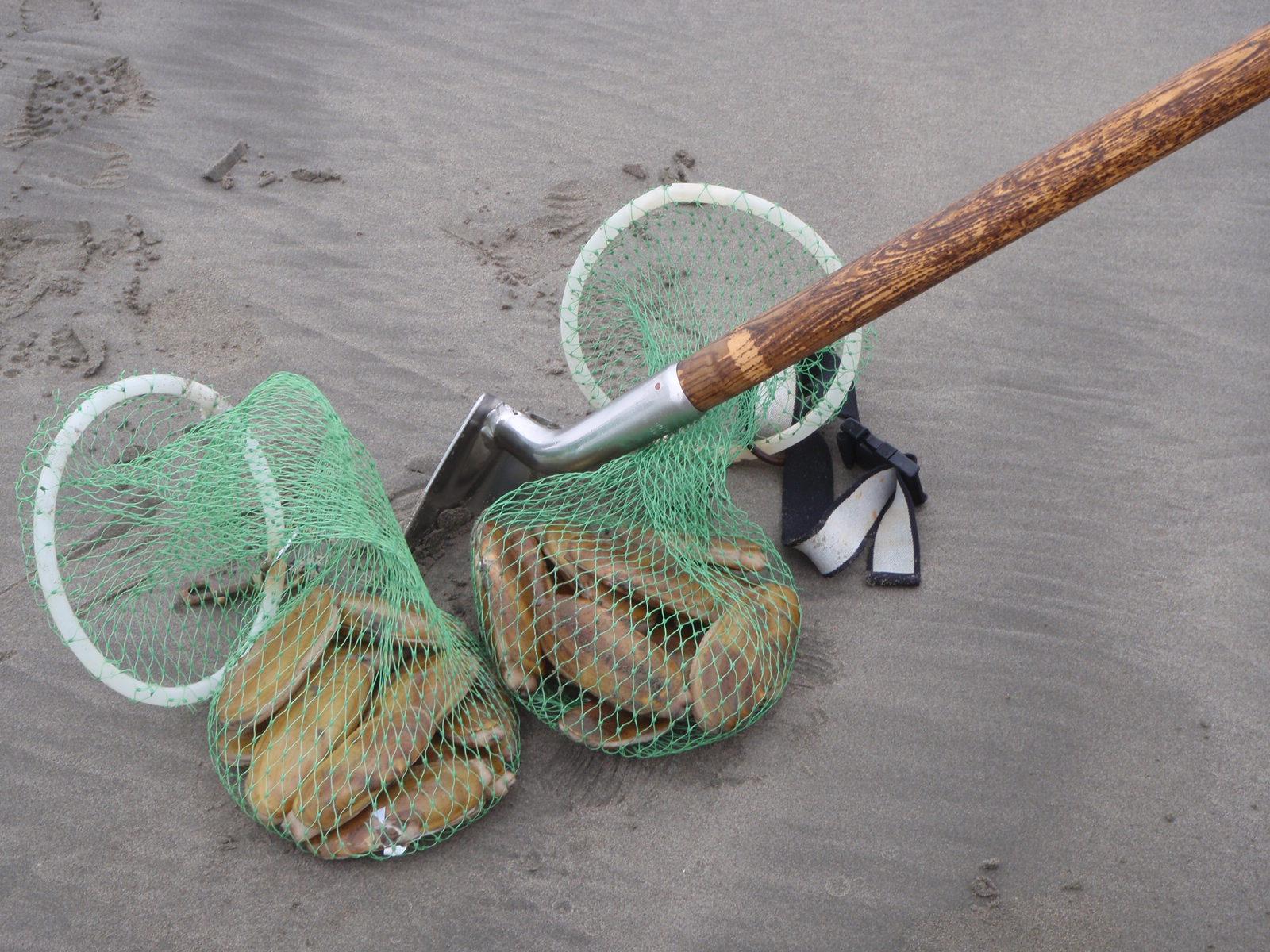ARCHIVED NEWS RELEASE
This document is provided for archival purposes only. Archived documents
do not reflect current WDFW regulations or policy and may contain factual
inaccuracies.
News release Dec. 21, 2021
Contact: Dan Ayres, 360-249-4628 ext. 209
Public Affairs contact: Ben Anderson, 360-902-0045
OLYMPIA – Razor clam enthusiasts can head to coastal beaches to ring in the new year as shellfish managers with the Washington Department of Fish and Wildlife (WDFW) today confirmed the next round of digging can proceed as planned from Dec. 30 through Jan 5.
“We are excited to offer razor clammers the chance to celebrate the new year, in a uniquely Northwest fashion, by harvesting their limits of 15 beautiful razor clams,” said Dan Ayres, coastal shellfish manager with WDFW.
Ayres noted that diggers should be aware the daily limit will return to the usual 15 razor clams beginning Dec. 30. Under state law, a daily limit consists of the first 15 clams dug regardless of size or condition, and each digger’s clams must be kept in a separate container.
In the meantime, the 20-clam daily limit remains in effect for these previously announced digs:
- Dec. 22, Wednesday, 8:38 P.M.; -0.1 feet; Long Beach, Twin Harbors, Copalis
- Dec. 23, Thursday, 9:16 P.M.; +0.2 feet; Long Beach, Twin Harbors, Mocrocks
“The most recent round of digs has had lighter crowds than previous series,” Ayres said. “I think weather and holiday activities may have played a role. Through Sunday, we have had just 11,700 digger trips taking 17.9 clams per digger. I was out Monday night at Copalis. It was cold with a stiff east wind, but we got our limits.”
Shellfish managers confirmed the following digs during evening low tides will proceed as scheduled, after marine toxin results from the Washington Department of Health showed razor clams were safe to eat:
- Dec. 30, Thursday, 3:49 P.M.; -0.1 feet; Long Beach, Twin Harbors, Mocrocks
- Dec. 31, Friday, 4:42 P.M.; -0.9 feet; Long Beach, Twin Harbors, Copalis
- Jan. 1, Saturday, 5:32 P.M.; -1.5 feet; Long Beach, Twin Harbors, Mocrocks
- Jan. 2, Sunday, 6:21 P.M.; -1.8 feet; Long Beach, Twin Harbors, Copalis
- Jan. 3, Monday, 7:08 P.M.; -1.9 feet; Long Beach, Twin Harbors, Mocrocks
- Jan. 4, Tuesday, 7:54 PM -1.6 feet; Long Beach, Twin Harbors, Copalis
- Jan. 5, Wednesday, 8:40 P.M.; -1.1 feet; Long Beach
Not all beaches are open for every dig, so diggers are encouraged to make sure their intended destination is open before heading out. Diggers should also continue to respect coastal communities and residents by following local and state health guidelines.
The most successful digging occurs between one and two hours before the listed time of low tide. The early part of the outgoing low tides on Dec. 30-31 will occur during daylight hours, a rare treat during the winter season. No digging is allowed before noon during digs when low tide occurs in the afternoon or evening.
Details on these and future digs can be found at wdfw.wa.gov/fishing/shellfishing-regulations/razor-clams.
All diggers age 15 or older must have an applicable fishing license to harvest razor clams on any beach.
Licenses, ranging from a three-day razor clam license to an annual combination fishing license or a Fish Washington license, are available from WDFW’s licensing website at fishhunt.dfw.wa.gov/login, and from hundreds of license vendors around the state. WDFW recommends buying your license before visiting coastal beach communities for this razor clam season.
To learn more about razor clam abundance, population densities at various beaches, and how seasons are set, visit wdfw.wa.gov/fishing/shellfishing-regulations/razor-clams#management.
The Washington Department of Fish and Wildlife works to preserve, protect, and perpetuate fish, wildlife and ecosystems while providing sustainable fish and wildlife recreational and commercial opportunities.
